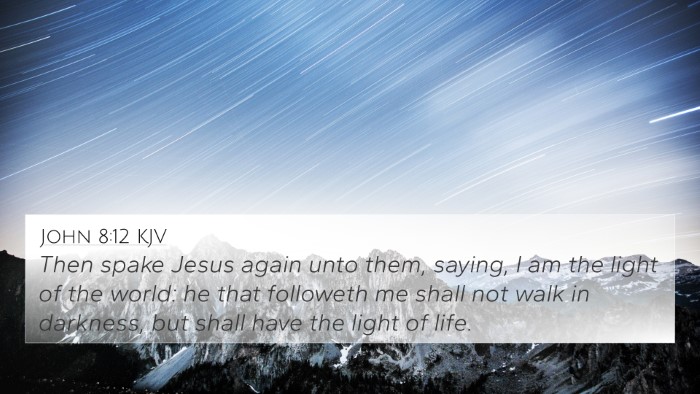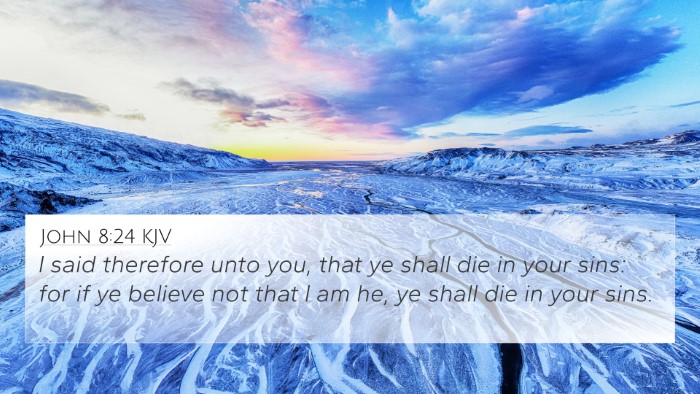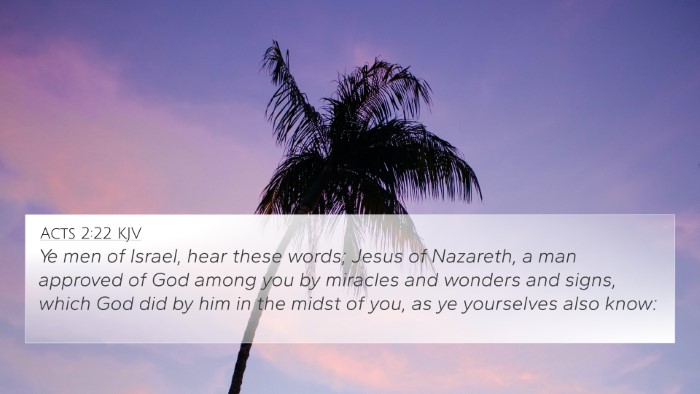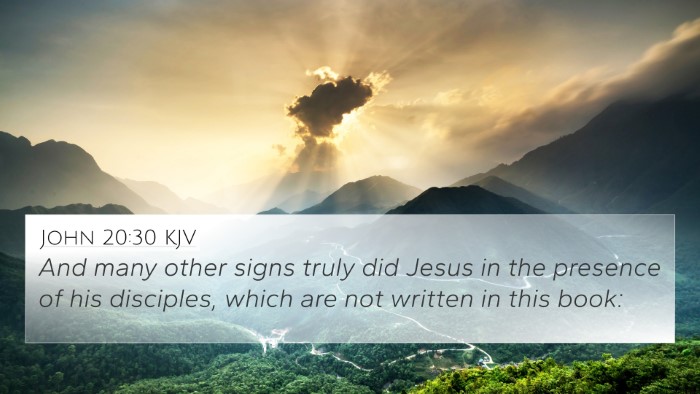Understanding John 10:25
In John 10:25, Jesus answers His skeptics, affirming His divine authority and mission. The verse captures a moment where Jesus speaks about His identity, emphasizing that He has already provided proof of His role as the Messiah through His miraculous works, yet many still do not believe.
Verse Text
“I told you, and ye believed not: the works that I do in my Father's name, they bear witness of me.” (John 10:25)
Verse Meaning and Insights
-
Divine Affirmation:
Matthew Henry notes that Jesus' works testify to His divine authority, and they serve as a witness to His claims. His miracles are not merely showmanship but serve a higher purpose of revealing His identity as the Son of God.
-
Rejection of the Truth:
Albert Barnes emphasizes that the opposition Jesus faced underscores humanity's disinclination to accept divine truth, even when presented with overwhelming evidence. This rejection illustrates the tension between divine revelation and human belief.
-
Affirmation through Actions:
Adam Clarke suggests that Jesus points to His works as a means of proving His claims. The miracles performed were not incidental but integral to understanding who He is. They serve as divine signs authenticating His mission.
Contextual Analysis
John 10:25 occurs within a passage where Jesus metaphorically describes Himself as the Good Shepherd, and those who follow Him hear His voice. This is pivotal in establishing the relationship between Jesus and His followers, suggesting a deeper spiritual awareness.
Scriptural Cross-References
John 10:25 shares thematic and theological connections with various other scripture passages. Below are some relevant biblical cross-references:
- John 5:36: "But I have greater witness than that of John: for the works which the Father hath given me to finish, the same works that I do, bear witness of me, that the Father hath sent me."
- Hebrews 2:4: "God also bearing them witness, both with signs and wonders, and with divers miracles, and gifts of the Holy Ghost, according to his own will."
- Matthew 11:4-5: "Jesus answered and said unto them, Go and shew John again those things which ye do hear and see: The blind receive their sight, and the lame walk, the lepers are cleansed, and the deaf hear, the dead are raised up, and the poor have the gospel preached to them."
- John 14:11: "Believe me that I am in the Father, and the Father in me: or else believe me for the very works' sake."
- Isaiah 61:1: "The Spirit of the Lord God is upon me; because the Lord hath anointed me to preach good tidings unto the meek; he hath sent me to bind up the brokenhearted, to proclaim liberty to the captives, and the opening of the prison to them that are bound."
- Acts 2:22: "Ye men of Israel, hear these words; Jesus of Nazareth, a man approved of God among you by miracles and wonders and signs, which God did by him in the midst of you, as ye yourselves also know."
- John 7:31: "And many of the people believed on him, and said, When Christ cometh, will he do more miracles than these which this man hath done?"
Thematic Connections
This verse is particularly rich in thematic connections within the Bible:
- Faith and Evidence: The interplay between faith and the evidence provided by Jesus' works is a recurrent theme.
- Jesus as the Shepherd: The concept of Jesus as a shepherd guiding His flock reaffirms His protective and authoritative role.
- Rejection of Prophets: The consistent refusal to accept prophets and their words throughout Scripture sets a historical parallel.
Tools for Cross-Referencing
For those interested in cross-referencing Bible verses, several resources can facilitate deeper study:
- Bible Concordance
- Bible Cross-Reference Guide
- Cross-Reference Bible Study Techniques
Conclusion
In summary, John 10:25 is a profound statement by Jesus that highlights the evidence of His works, urging believers to recognize the divine truth that those works represent. Through the lens of cross-referencing with other scripture, we can explore how interconnected the themes of faith, evidence, and Jesus’ identity as the Good Shepherd are throughout the Bible.

















